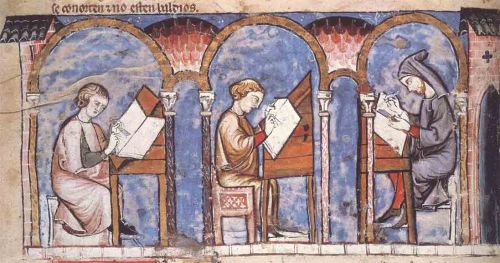 Jerusalem Temple officials condemned a cadre of fellow Jews to death in 62 CE. According to the received version of Josephus’s Antiquities of the Jews, the victims included a certain James, a “brother of Jesus called Christ.” Josephus knew the officials and he would have had personal and professional knowledge about the trial. As such, his report would stand as strong evidence that the Christian Jesus really lived in first century Palestine.
Jerusalem Temple officials condemned a cadre of fellow Jews to death in 62 CE. According to the received version of Josephus’s Antiquities of the Jews, the victims included a certain James, a “brother of Jesus called Christ.” Josephus knew the officials and he would have had personal and professional knowledge about the trial. As such, his report would stand as strong evidence that the Christian Jesus really lived in first century Palestine.
Scholars generally agree that this version of the James passage (Antiquities XX.9.1.200 link) is authentic. A minority view, however, points to the difficulty of authenticating the critical two words (“called Christ”).
Many Jesuses lived in first century Judea. Josephus mentions two of them in connection with the aftermath of James’s trial, the high priests Jesus ben Damneus and Jesus ben Gamaliel. Josephus wrote about another Jesus, the son of Ananus (unrelated to the priests of that name), in his account of the Jewish War (VI.5.3.300-309 link). That Jesus began obsessively proclaiming the doom of Jerusalem shortly after the trial and was severely punished for it by both Jewish and Roman authorities.
The Uncertaintist has posted several times about the James problem (link). The perspective here has always been to explain how Josephus’s text might have been changed by its earliest known witnesses, Origen and Eusebius, with no intention to deceive. Origen falsely remembers Josephus writing extensively about defendant James. In fact, Josephus wrote nothing about James except a brief identification of him as one of those condemned at the trial.
Origen’s reliance on his obviously addled memory of what he had read, Eusebius’s choice to adopt Origen’s phrase “called Christ,” and later copyists’ choices to view the challenged original text as an earlier scribe’s mistake could easily combine to orchestrate an innocent alteration of the critical few words over time.
Blogger Dave Allen (link) offers another hypothesis about the original form of the passage. What if Josephus didn’t explicitly say anything about defendant James’s brother, but instead identified James as the son of Joseph? Joseph was the name of a recently removed high priest. However, for Christian readers, mightn’t “James, son of Joseph” call to mind another “son of Joseph,” as ordinary people would have called the Gospel Jesus?
The merits of Allen’s proposal are similar to those of the brother-of-Jesus hypotheses discussed in earlier posts here at The Uncertaintist. The sincerity of Origen and of the later scribes are as likely as under other hypotheses about the original text. What’s different is that Allen’s proposal, if correct, would make it very difficult to avoid accusing Eusebius of deliberate dishonesty.




